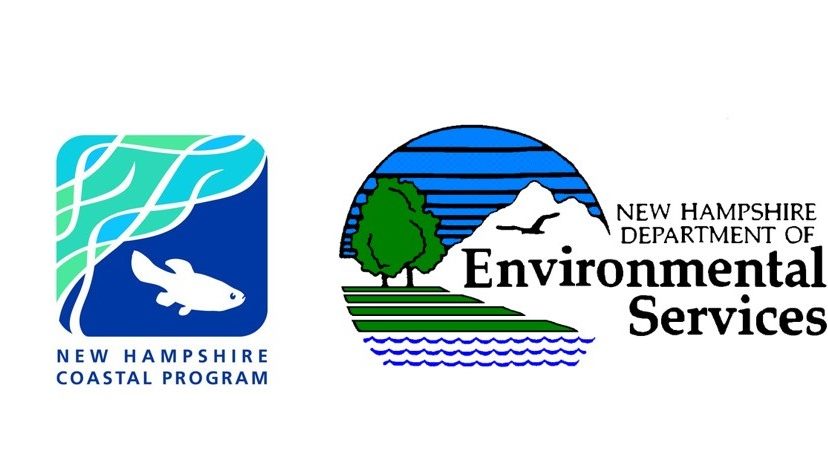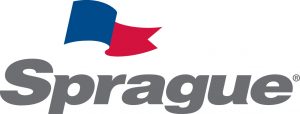Since 2001, we have cleaned beaches with the community to reduce litter entering the ocean and protect marine life. Volunteers of all ages tally items as they collect them from the beach, and this data is used to prevent future pollution.
Learn about what litter we find on the beach during cleanups in Maine, New Hampshire, and Massachusetts. Did we clean your favorite beach in 2024?
Download a PDF file with 2024 Marine Debris Data
What is marine litter/debris?
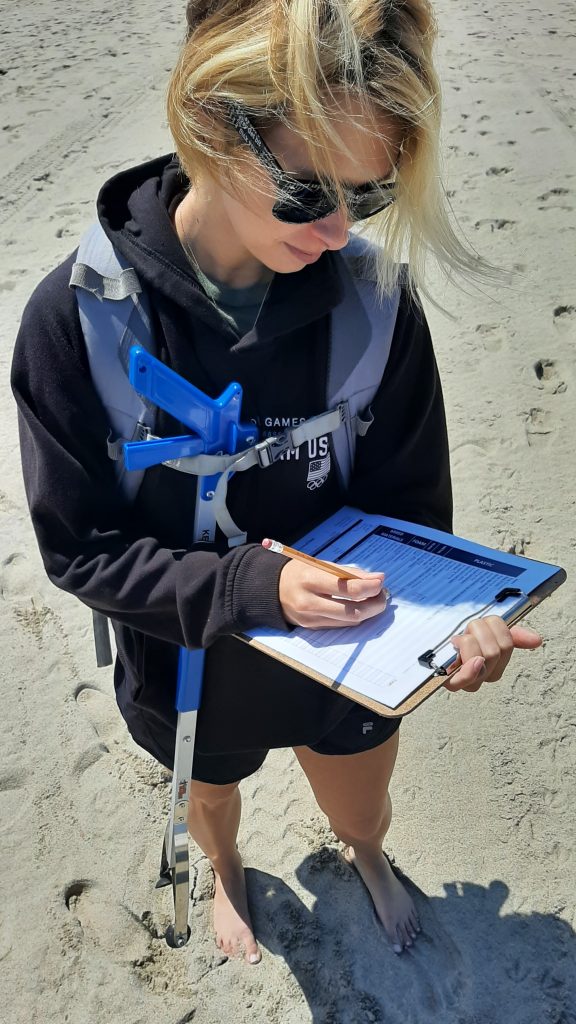
Marine debris, also known as marine litter, refers to the human-made items on a beach or in the ocean that do not belong in nature. These items were “lost” to nature in one of these ways:
- Blown away by the wind from a hand, car, bag, or trash bin
- Left behind on the beach
- Washed into a river or stream, which all lead to the ocean
- Accidentally fell off a boat or shipping vessel
- Washed out of a landfill that does not effectively contain waste
- Illegally dumped into the ocean or another waterway
You will find examples of marine debris items in the Total Cleanup Tally data table below. We tally how many of these items we find during our cleanups so we can better understand marine debris on our beaches and how we can prevent it.
Why is it important?
Litter travels the world through waterways. All rivers and streams eventually lead to the ocean, where it travels through ocean currents. Marine life comes in contact with litter on shore and in the open ocean, where it can ingest it or become entangled in it.
Marine litter is made up of many different materials, each breaking down differently once it lands in nature. Paper, metal, and glass are materials that break down into something that belongs in nature. These materials return to nature, and nature’s systems function normally with them present. However, this is not true of plastic. Plastic does not break down completely in nature, nor does it become something that belongs in nature.
Plastic breaks down into smaller and smaller pieces, which eventually become microscopic. Scientific research shows that the chemical bonds that make up plastic cannot break down, so plastic cannot transform into another material, or biodegrade. These microplastics cycle through nature’s systems. They flow through waterways, are consumed by humans and animals, and move through our food webs. If you’re curious about how long certain materials and objects take to decompose, find some examples in this article.
2024 Cleanup Findings
In 2024, we conducted a total of 293 cleanups at 38 different cleanup sites with the help of 4,055 volunteers! Together, we collected 160,811 debris items weighing over 8,000 pounds!
The Total Cleanup Tally
This is the total number of debris items found from most items to least items! Are you surprised by any of these?
| Cigarette butts/filters | 22,175 |
| Other items not on list | 20,665 |
| Plastic pieces (5mm-2.5cm) | 10,538 |
| Plastic pieces (5mm or less | 9,521 |
| Other unknown plastic (larger than 10 cm) | 9,325 |
| Plastic wrappers | 9,221 |
| Plastic bottle caps | 7,584 |
| Rope scraps (smaller than 1 m) | 7,097 |
| Plastic pieces (2.5cm-10cm) | 6,935 |
| Foam pieces (5mm-2.5cm) | 5,726 |
| Foam pieces (5mm or less) | 5,083 |
| Foam pieces (2.5cm-10cm) | 4,479 |
| Plastic film (thin/flexible e.g. straw wrapper) | 3,790 |
| Packing material | 2,665 |
| Other metal | 2,575 |
| Plastic straws | 2,557 |
| Other glass | 2,419 |
| Rope (larger than 1 meter/yard) | 2,344 |
| Traps/pot pieces (not removed from beach) | 1,846 |
| Persol hygiene items | 1,770 |
| Glass pieces (5mm-2.5cm) | 1,702 |
| Beverage cans | 1,649 |
| Glass pieces (5mm or less) | 1,532 |
| Lobster bands | 1,490 |
| Food containers | 1,188 |
| Zip ties (cable ties) | 1,161 |
| Metal bottle caps | 1,117 |
| Plastic beverage bottles | 993 |
| Plastic grocery bag | 963 |
| Plastic zip-lock/produce bag | 962 |
| foam cups | 947 |
| Fishing line | 811 |
| Plastic non-beverage containers/bottles | 804 |
| Plastic trash bag | 744 |
| Glass beverage bottles | 707 |
| Glass pieces (2.5cm-10cm) | 668 |
| Foam food containers | 569 |
| Foam floats/Buoys (not removed from beach) | 545 |
| Plastic nets | 526 |
| Dog Poop (bagged) | 383 |
| Strapping bands (open) | 326 |
| Latex balloons | 272 |
| Dog Poop (un-bagged) | 223 |
| Hooksett disks | 147 |
| Strapping bands (closed) | 127 |
| Syringes | 124 |
| Mylar balloons | 116 |
Single-Use Plastics
Single-use plastics account for a large portion of the debris items we found in 2024.
What can you do about it?
- Eliminating unnecessary plastics from your lifestyle will reduce your contributions to marine litter. What reusable, non-plastic, or thrifted items could you use to replace the single-use items in your life? Choose one item at a time, and try to find a replacement that fits your lifestyle.
- A source of marine litter is trash lost to the environment from our trash bins at home, particularly during windy, rainy storms and from landfills. Using trash and recycle bins with secure lids is another way to reduce the amount of marine litter in the ocean.
- Join a Cleanup Now
New Hampshire Cleanups
Through 221 cleanups conducted in New Hampshire, we collected about 130,433 items weighing almost 7,000 pounds. Check out the sites we cleaned below.
Our four most-cleaned beaches were Hampton Beach, Foss Beach, Jenness Beach, and Peirce Island.
| NH Beach | Cleanup Count | Adult Volunteers | Children Volunteers | Number of Debris Items | Total Pounds |
| Hampton Beach | 68 | 1,227 | 238 | 77,115 | 1,643 |
| Jenness Beach | 23 | 253 | 199 | 12,349 | 1,103 |
| Seabrook Beach | 22 | 86 | 40 | 2,893 | 331 |
| Peirce Island | 16 | 133 | 12 | 9,925 | 319 |
| Odiorne Point State Park | 12 | 142 | 27 | 5,508 | 359 |
Top Litter Items Collected in New Hampshire
| NH Top 10 | Count | |
| 1 | Cigarette butts/filters | 20,246 |
| 2 | Other items not on list | 18,167 |
| 3 | Plastic pieces (5mm-2.5cm) | 8,786 |
| 4 | Plastic pieces (5mm or less) | 8,050 |
| 5 | Plastic Wrappers | 7,811 |
| 6 | Other unknown plastic (larger than 10cm) | 7,627 |
| 7 | Rope scraps (smaller than 1 m) | 6,074 |
| 8 | Plastic bottle caps | 5,970 |
| 9 | Plastic pieces (2.5cm-10cm) | 4,949 |
| 10 | Foam pieces (5mm or less) | 3,707 |
Maine Cleanups
We conducted 63 cleanups in Maine with the help of 493 volunteers at 10 different sites. We removed 18,269 pieces of debris weighing 1,014 pounds!
Maine Sites Cleaned
East End Beach and Ferry Beach were our most-cleaned beaches in Maine, thanks to Allagash Brewing Company, who adopted East End Beach and Work Opportunities, who adopted Ferry Beach!
Looking to protect marine ecosystems in Maine? We are looking for folks to adopt beaches in Maine in 2024!
Top Litter Items Collected in Maine
| ME Top 10 | Count | |
| 1 | Other items not on list | 1,651 |
| 2 | Cigarette butts/filters | 1,534 |
| 3 | Foam pieces (5mm-2.5cm) | 1,293 |
| 4 | Foam pieces (2.5cm-10cm) | 1,214 |
| 5 | Plastic wrappers | 1,095 |
| 6 | Plastic pieces (2.5cm-10cm) | 1,067 |
| 7 | Plastic pieces (5mm-2.5cm) | 1,059 |
| 8 | Other unknown plastic (larger than 10cm) | 1,008 |
| 9 | Plastic pieces (5mm or less) | 1,001 |
| 10 | Foam pieces (5mm or less) | 921 |
Massachusetts Cleanups
We conducted 7 cleanups in Massachusetts with the help of 147 volunteers at 4 different sites. We removed 11,602 pieces of debris weighing 220 pounds!
Top Litter Items Collected in Massachusetts
| MA Top 10 | Count | |
| 1 | Foam pieces (2.5cm-10cm) | 1,799 |
| 2 | Plastic bottle caps | 1,279 |
| 3 | Foam pieces (5mm-2.5cm) | 1,144 |
| 4 | Plastic pieces (2.5cm-10cm) | 914 |
| 5 | Other items not on list | 837 |
| 6 | Other unknown plastic (larger than 10cm) | 689 |
| 7 | Plastic pieces (5mm-2.5cm) | 652 |
| 8 | Foam pieces (5mm or less) | 437 |
| 9 | Plastic pieces (5 mm or less) | 397 |
| 10 | Cigarette butts/filter | 394 |
This data is intended for educational purposes only. Raw data is available upon request.
Connect with us
- Join a public cleanup
- Book a private cleanup for your school, team, club, etc.
- Adopt a beach: volunteer to protect marine life year-round
- Contact programs@blueoceansociety with questions and to learn more about opportunities for cleanup sponsorship and collaboration
Thank you to our dedicated volunteers for their commitment to clean beaches and healthy marine ecosystems.
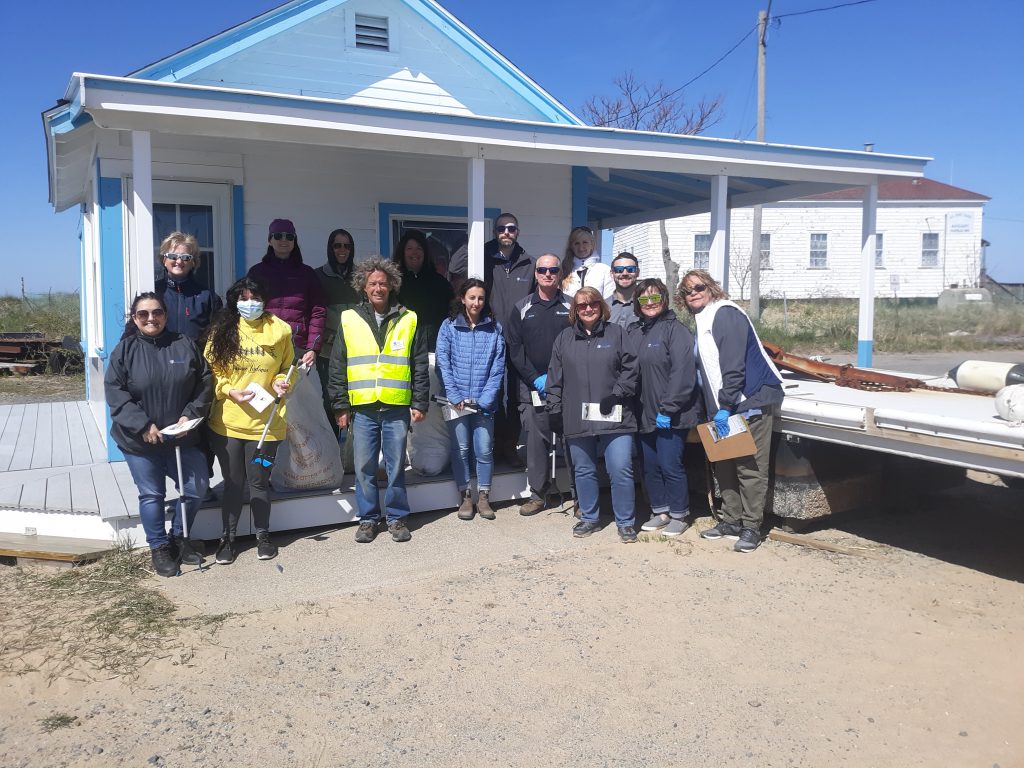
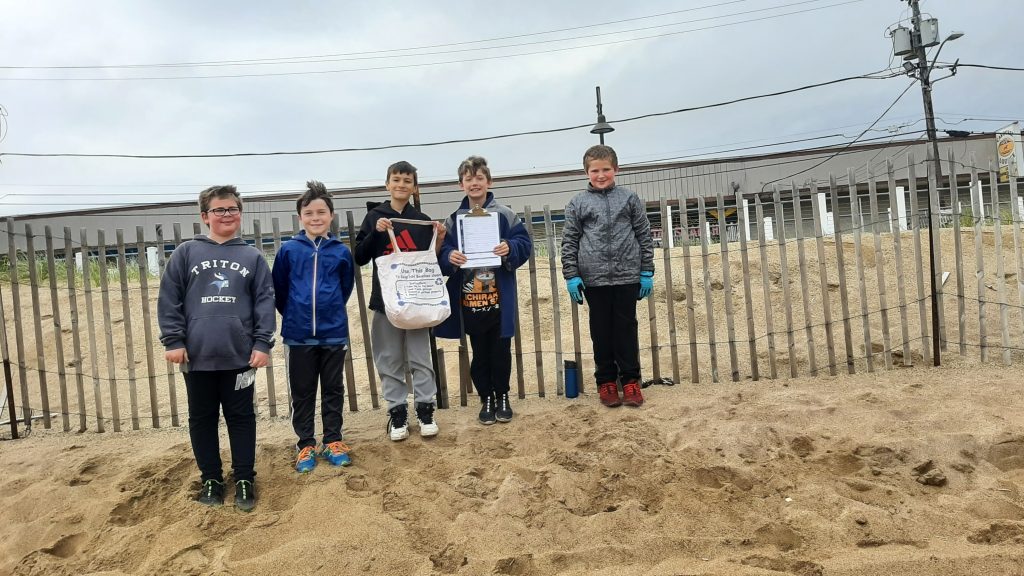
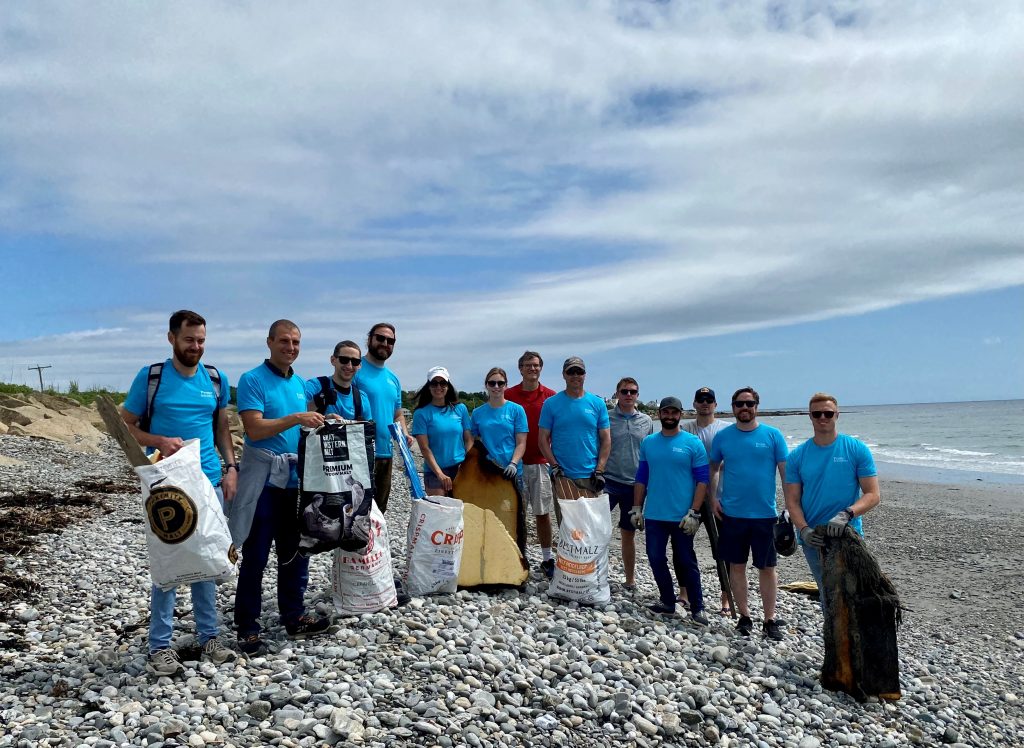
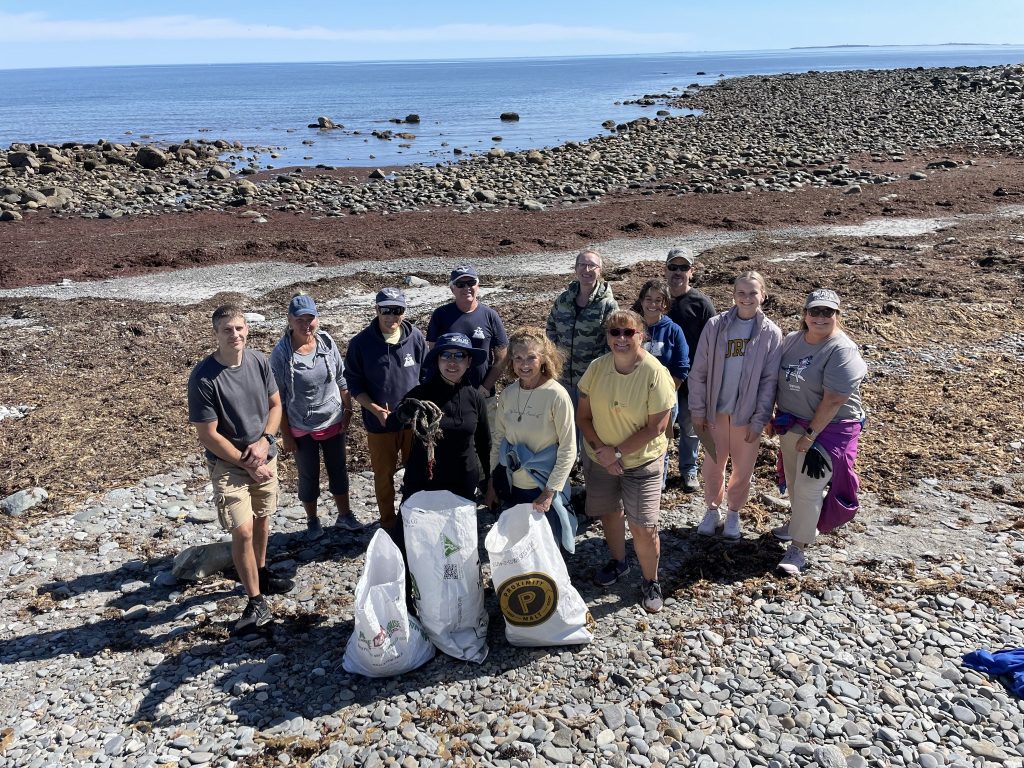
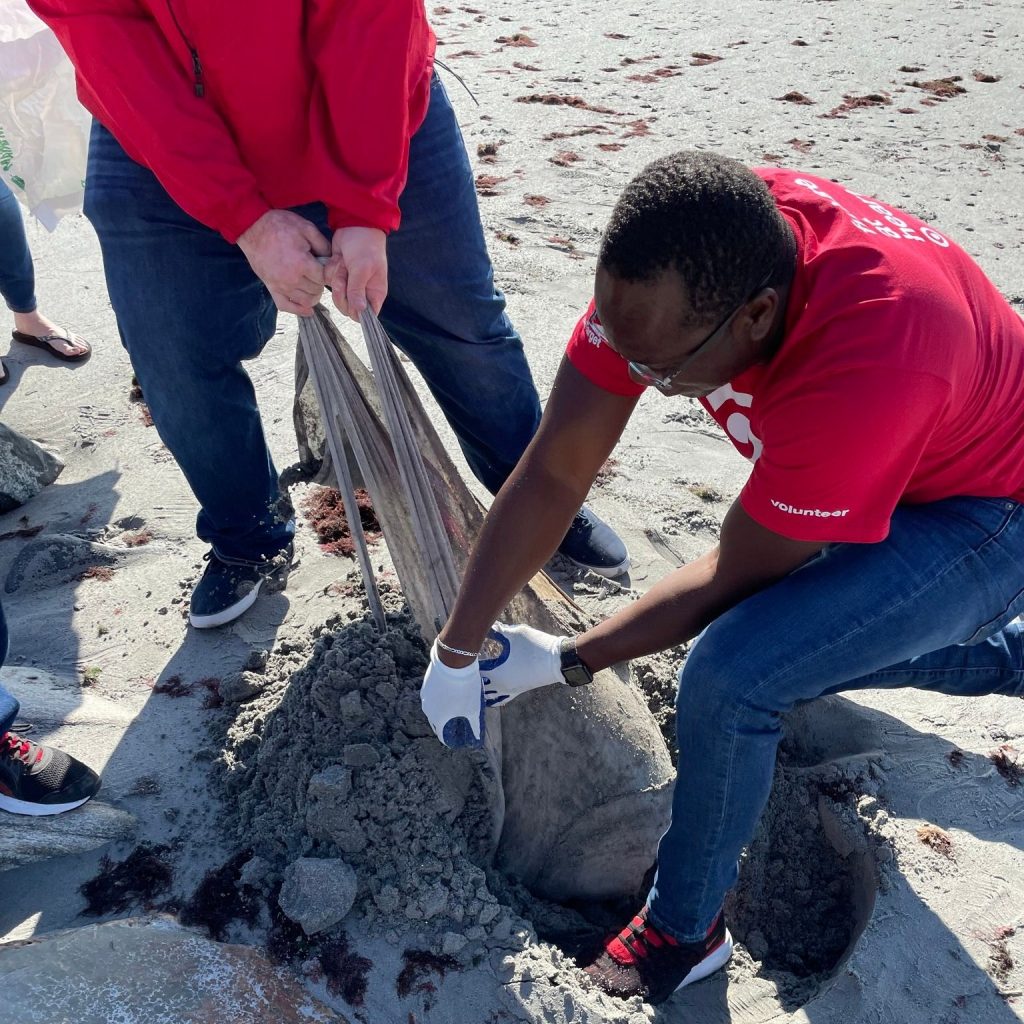
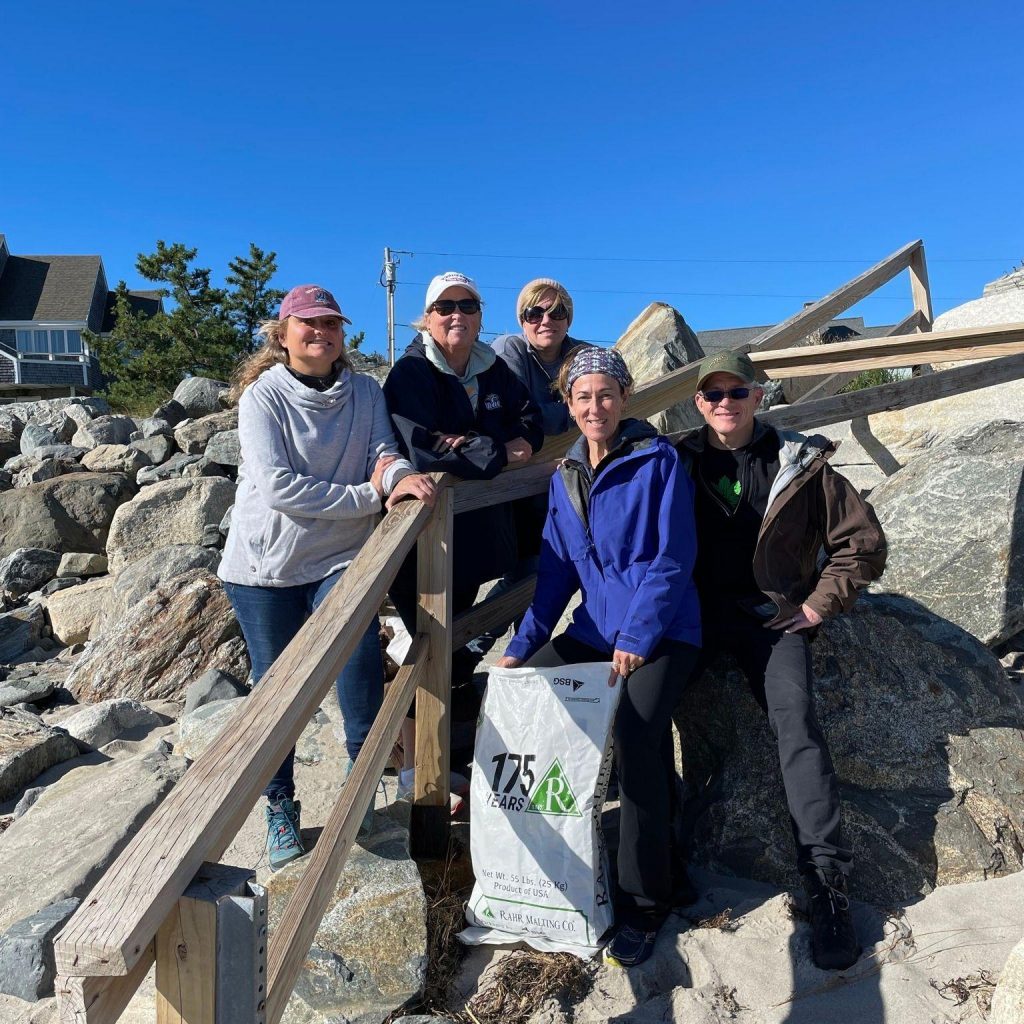
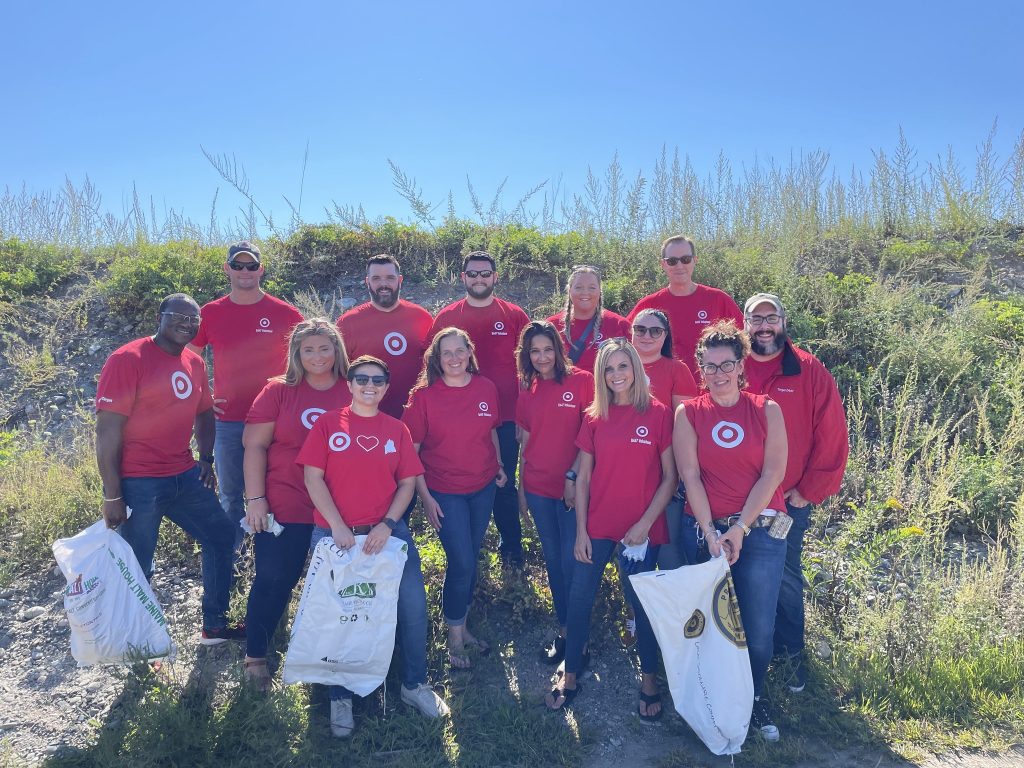
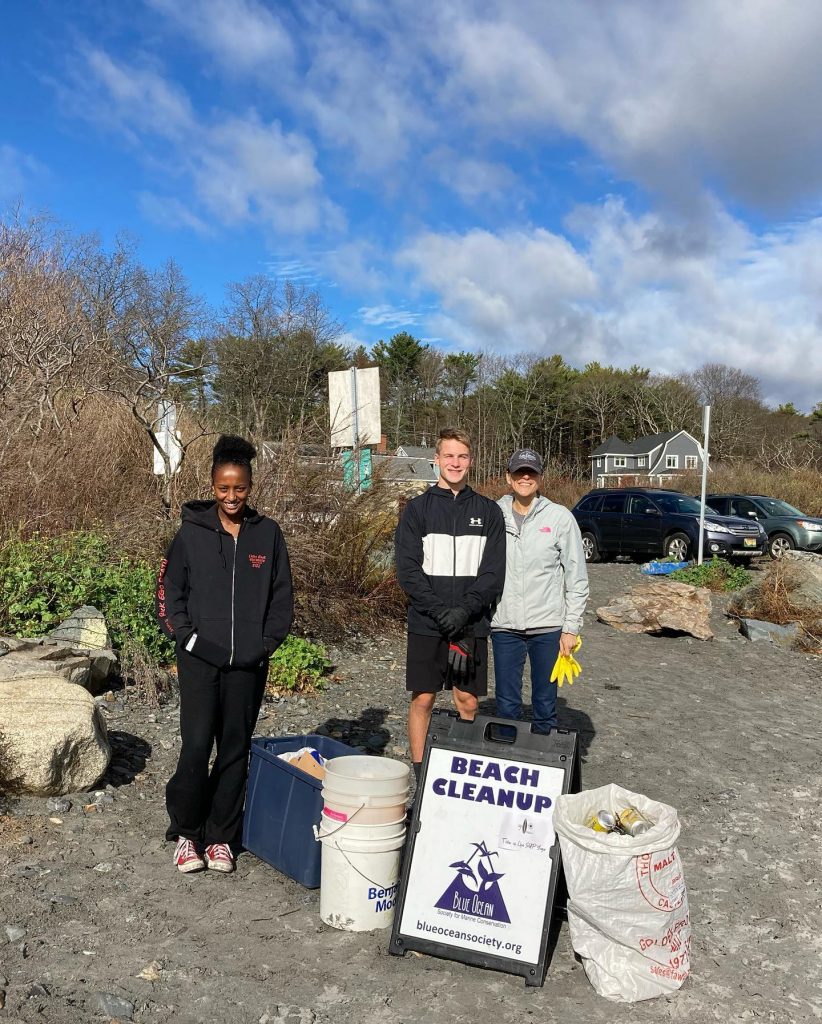
We would like to thank these agencies and sponsors for their continued support of this cleanup and marine debris monitoring program.
